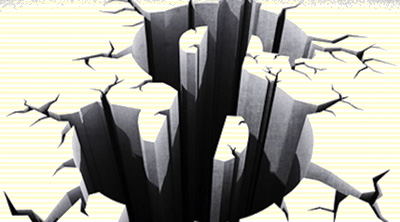The Fed Detests Free Markets
Raúl Ilargi Meijer
 To be completely honest, I wrote -most of- the second part of this a while ago, and then I was thinking this first part should be part of the second, if you can still follow me. But it doesn’t really, it’s fine. I wanted to write something to address how little people know and acknowledge about how disastrous central bank policies have been for our societies and economies. To be completely honest, I wrote -most of- the second part of this a while ago, and then I was thinking this first part should be part of the second, if you can still follow me. But it doesn’t really, it’s fine. I wanted to write something to address how little people know and acknowledge about how disastrous central bank policies have been for our societies and economies.
Because they don’t, and they have no clue, largely and simply because of the way central banks are presented both by themselves and by the financial press that covers them. Make that “covers”. Still, going forward, we will have no way to ignore the damage done. All the QE and ZIRP and NIRP will turn out to be so destructive for us all they will rival climate change or actual warfare. That’s what I wanted to talk about.
You see, free markets are a great idea in theory. Or you can call it “capitalism”, or combine the two and say “free market capitalism”. There’s very little wrong with it in theory. You have an enormous multitude of participants in an utterly complex web of transitions, too complex for the human mind to comprehend, and in the end that web figures out what values all sorts of things, and actions etc., have.
I don’t think capitalism in itself is a bad thing; what people don’t like is when it veers into neo-liberalism, when everything is for sale, when communities or their governments no longer own anything, when roads and hospitals and public services and everything that holds people together in a given setting is being sold off to the highest bidder. There are many things that have values other than monetary ones, and neo-liberalism denies that. Capitalism in itself, not so much.
It’s like nature, really, like evolution, but it’s Darwin AND empathy, individuals AND groups. The problem is, and this is where it diverges from nature, you have to make sure the markets remain free, that certain participants -or groups thereof- don’t bend the rules in their own favor. In that sense it’s very similar to what the human race has been doing to nature for a long time, and increasingly so.
Now, if you limit the discussion to finance and economics, there would appear to be one institution that’s in an ideal place to make sure that this “rule-bending” doesn’t take place, that markets are fair and free, or as free as can be. That institution is a central bank. But whaddaya know, central banks do the exact opposite: they are the ones making sure markets are not free.
In the ideal picture, free markets are -or would be- self-correcting, and have an inbuilt self-regulating mechanism. If and when prices go up too much, the system will make sure they go lower, and vice versa. It’s what we know from physics and biology as a negative -self correcting- feedback loop. The self-correcting mechanism only activates if the system has veered too much in one direction, but we fail to see that as good thing when applied to both directions, too high and too low (yes, Goldilocks, exactly).
It’s only when people start tweaking and interfering with the system, that it fails. Negative feedback vs positive feedback are misunderstood terms simply because of their connotation. After all, who wants anything negative? But this is important in the free markets topic, because as soon as a central bank starts interfering in, name an example, housing prices in a country, the system automatically switches from negative feedback to positive -runaway- feedback, there is no middle ground and there is no way out anymore, other than a major crash or even collapse.
Well, we’re well on our way to one of those. Because the Fed refused to let the free market system work. They, and the banks they represent, wanted the way up but then refused the way down. And now we’re stuck in a mindless positive feedback loop (new highs in stocks on a daily basis), and there’s nothing Jay Powell and his minions can do anymore to correct it.
The system has its own correction mechanism, but Greenspan, Bernanke, Yellen and now Powell thought they could do better. Or maybe they didn’t and they just wanted their banker friends to haul in all the loot, it doesn’t even matter anymore. They’ve guaranteed that there are no free markets, because they murdered self-correction.
Same goes, again, for ECB and BOJ; they’re just Fed followers (only often even crazier). In fact since they have no petrodollar, they don’t just follow, they have to do the Fed one better. Which is why they have negative interest rates -and the US does not -yet-: it’s the only way to compete with the reserve currency. Of course today even the Fed, and “even even” the PBOC, are discussing moving to negative rates, and by now we’re truly talking lemmings on top of a cliff.
“Let’s throw $10 trillion at the wall just so home prices or stock prices don’t go down!” Yeah, but if they’ve been rising a lot, maybe that’s the only direction they can and should go. It may not be nice for banks and so-called “investors”, but it’s the only way to keep the system healthy. If you don’t allow for the negative feedback self-correction, you can only create much bigger problems than you already have. And then you will get negative feedback squared and cubed.
Unless, of course, you have stellar economic growth, and you find unparalleled amounts of oil, and you have a growing population with way more kids born than people dying. But in case you don’t, you’re merely making an initially relatively minor problem much much worse with QE and ZIRP.
What central banks have been doing is they’ve utterly destroyed savings and pensions, i.e. the only thing “ordinary” people had to stave off their own personal collapse and that of their communities. ZIRP and NIRP move all those savings and pensions towards the bankers. And yes, pension funds may have moved into equities from bonds, and they may look good momentarily, but the current parade of new highs in stock markets only exists because of central banks’ QE and ZIRP.
There are tons of zombie enterprises in the world, many of whom have been kept alive by central bank policies, but wait till it becomes evident that the pension funds and systems themselves have turned into zombies. That’ll wake you up. Because who’s going take care of grandma, or her daughter, in a few years’ time? One thing’s for sure, it won’t be Jay Powell.
This has gotten so long already I’ll leave the part 2 I mentioned above to be its own, separate, part 2. Soon.

Nicole M. Foss is co-editor of The Automatic Earth, where she writes under the name Stoneleigh. She and her writing partner, Raúl Ilargi Meijerhave been chronicling and interpreting the on-going credit crunch as the most pressing aspect of our current multi-faceted predicament. The site integrates finance, energy, environment, psychology, population and real politik in order to explain why we find ourselves in a state of crisis and what we can do about it. Prior to the establishment of TAE, she was previously editor of The Oil Drum Canada, where she wrote on peak oil and finance.
Her academic qualifications include a BSc in biology from Carleton University in Canada (where she focused primarily on neuroscience and psychology), a post-graduate diploma in air and water pollution control, the common professional examination in law and an LLM in international law in development from the University of Warwick in the UK. She was granted the University Medal for the top science graduate in 1988 and the law school prize for the top law school graduate in 1997.
www.theautomaticearth.com
|




